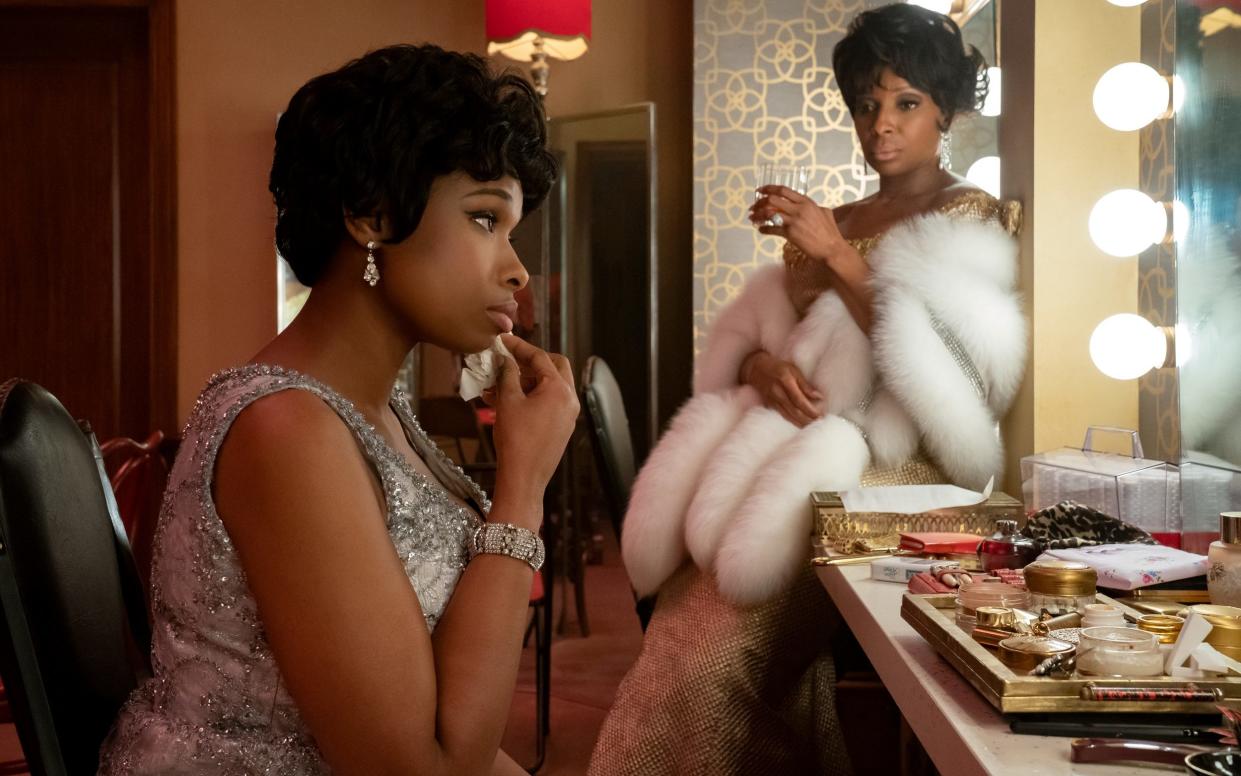Respect, review: solid Aretha Franklin biopic that honours its title a little too much

12A cert, 145 min. Dir: Liesl Tommy
Doing Aretha Franklin total justice might be a little beyond her new biopic, a middleweight picture with a heavyweight running time. But it certainly dishes out nothing less than the title demands. Respect has Jennifer Hudson on the best form she’s been since winning an Oscar for Dreamgirls (2006), certainly laying the mortification of Cats to rest. She pays due homage to Franklin’s peerless craft as a singer, without quite threatening to blow you away.
A slick, measured biopic like this is about settling in for the long haul. It begins in 1952 suburban Detroit, when Franklin was a shy preacher’s daughter with a burgeoning talent, and takes us through to the recording of Amazing Grace, her biggest ever album, in 1972. It took years to make her mark as a recording artist; this is the career trajectory. Her first nine albums, mostly of jazz and Broadway standards, flopped for Columbia Records, and only when she switched up to Atlantic under producer Jerry Wexler (a gabby, enjoyable Marc Maron) did hits of her own start coming.
Meanwhile, she was in the grip of male influences she couldn’t escape – or not until we hear her rendition of Think, “freedom… oh freeeedom!” ringing out over a suddenly muffled backing track to underline that point. Over time, she learned to stand up to her father, the prominent Baptist minister CL Franklin (a glowering Forest Whitaker), with whom she tussled repeatedly over civil rights – though she apparently remembered none of his bitter rows with her mother Barbara (Audra McDonald), who died suddenly when Aretha was 10.
One shot of a closing bedroom door implies her statutory rape at that age, but the film skips over the birth of Aretha’s first child Clarence at 12 – maybe the first sign of nerves about really digging into her life’s difficulties. The foremost of these, other than a growing dependency on alcohol, was the abusive hold of her charismatic first husband Ted White (a naggingly lightweight Marlon Wayans), against every fatherly injunction. By all accounts, the two men loathed each other, which really ought to result in a few more dramatic fireworks than it does.
There’s nothing at all wrong with Respect, which is colourful and pretty well played, other than an overall air of caution – and the thing about Aretha Franklin’s voice is that it really swung for the rafters. Acres of runtime here are spent squabbling over arrangements and griping about session musicians – the kind of disputes Ma Rainey’s Black Bottom put in to make historical points, but this just trots out as dutiful filler. Stray moments, like Aretha’s esteem for the white keyboardist Spooner Oldham, add warmth and detail, but as biography, it feels too contoured, and just a bit safe.

Like Loretta Lynn in Coal Miner’s Daughter, something of a template, Aretha stumbles on stage strung out – she fell off one in Georgia drunkenly in 1967 and broke her arm. “Say A Little Prayer” is presented, with nudging irony, as the number she crashed out on (in real life it was “Never Loved a Man”). Liesl Tommy, the film’s debuting director, dives in for one tidy reel’s worth of remorse and rehab after this, with Hudson in a daze, before reaching for a finale of gospel-focused religious healing.
Franklin died only in 2018, and was personally involved through this film’s long development, which is why it has an unmistakably authorised, hemmed-in quality. She predicted that Hudson would win a second Oscar for it. I think not. It’s as good a performance as she’s given to date, and she looks terrific in these costumes, every inch the soul diva. When she finally turns her back on Ted, it’s with a damning air of finality, as if she’s grasped some new power within herself as a woman.
Impressive as it is, her full blast at the mic is always less than Aretha’s full blast – but whose isn’t? This is the kind of performance that nearly gets a nomination, in the kind of solid film that’s basically too square a pedestal.
In cinemas from today


